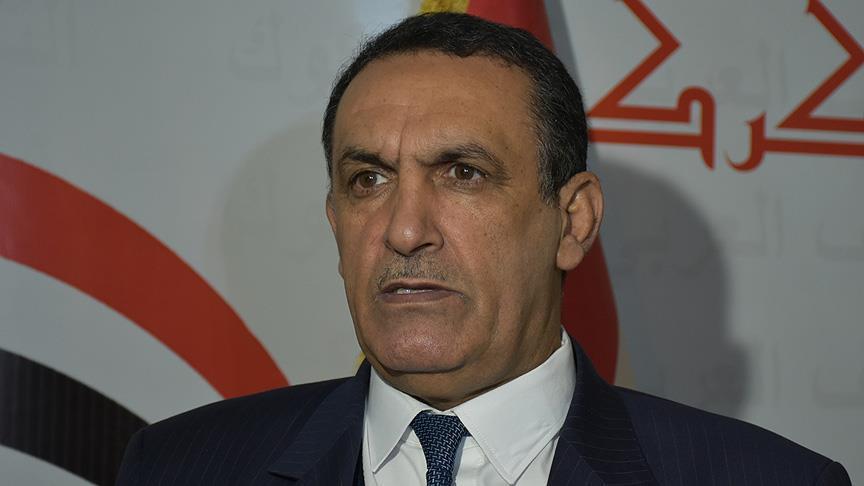EurActiv (16 January 2019)
The World Economic Forum will discuss new models of cooperation in Davos next week amid growing pressure from politicians and people who question the benefits of globalisation.
More than 3,000 decision makers, business leaders, civil society representatives, and 65 heads of state or government will attend the World Economic Forum in Davos, Switzerland, on 22-25 January.
The global trade war and the opposition to the Paris Agreement on climate change by US President Donald Trump and the new president of Brazil, Jair Bolsonaro, are putting at risk multilateral cooperation at a time when global risks continue to emerge, including migration, cyber-threats and terrorism.
Against this backdrop, the four-day forum in the Swiss resort will discuss new formulas to better tackle global challenges in the context of the digital revolution.
This year’s theme is ‘Globalisation 4.0: Shaping a Global Architecture in the Age of the Fourth Industrial Revolution”.
“We are entering a period of profound global instability brought on by the technological disruption of the Fourth Industrial Revolution and the realignment of geo-economics and geopolitical forces,” said Klaus Schwab, Founder and Executive Chairman of the World Economic Forum.
“This fourth wave of globalisation needs to be human-centered, inclusive and sustainable,” he added in a message to participants, which includes Brazil’s new far-right President Jair Bolsonaro. US President Donald Trump was also expected to attend the forum but he canceled due to the shutdown of his government.
French President Emmanuel Macron also declined to attend at the last minute to lead a national debate to hear citizens’ complaints following the ‘yellow vests’ protests.
Europe will be represented by German chancellor Angela Merkel, Italian Prime Minister Giuseppe Conte, Spanish Prime Minister Pedro Sánchez, Austrian Chancellor Sebastian Kurz, Irish Prime Minister Leo Varadkar, Dutch Prime Minister Mark Rutte, Belgian Prime Minister Charles Michel, Bulgarian Prime Minister Boyko Borissov, Polish Prime Minister Mateusz Morawiecki, and Slovak Prime Minister Peter Pellegrini.
Other global leaders will include the prime minister of Japan, Shinzo Abe, the vice-president of China, Wang Qishan, and the prime minister of Israel, Benjamin Netanyahu.
On the European Commission side, the six-member delegation will be headed by vice-president Jyrki Katainen.
The EU’s Brexit negotiator Michel Barnier, seen as a potential candidate for the Commission Presidency, will also attend the event. Manfred Weber, his party comrade and lead candidate for the European elections on behalf of the European People’s Party (EPP), will also be there.
The forum will take place at a moment of growing concern about the slowdown of the global economy and the risk of a new recession.
Last year, some participants already warned about the risk of a recession in the coming two years, although the global economy was still growing and all regions were contributing to global output.
Decision-makers and business leaders were also concerned in past editions about the growing instability triggered by the digital revolution, and persistent inequalities within developed nations.
The forum will launch half a dozen debates to come up with new ideas to adapt the multilateral system to those challenges.
One of the debates will focus on rethinking the global institutional framework that emerged in the 20th century to ensure it continues to be relevant in the current political economic and social context.
The discussion will come as other institutions, including the G20 and the World Trade Organisation, are in the process of reforming to better cope with today’s issues.
The heads of the main multilateral organisations, including the UN, World Bank, IMF, WTO, OECD and NATO will attend the conference.
No comments yet.
- UK PARLIAMENT REJECTS MAY'S BREXIT DEAL IN HISTORIC DEFEAT Europe - EU 16.01.2019
-
 DAESH STILL THREATENS IRAQ'S KIRKUK: GOVERNOR
Iraq
16.01.2019
DAESH STILL THREATENS IRAQ'S KIRKUK: GOVERNOR
Iraq
16.01.2019
- BOSNIA-HERZEGOVINA FAILS TO FORM GOV'T IN OVER 3 MONTHS The Balkans 16.01.2019
- AZERBAIJAN TO ATTEND NATO MILITARY COMMITTEE MEETING The Caucasus and Turkish-Armenian Relations 16.01.2019
- EU SUGGESTS MAJORITY VOTE ON DIGITAL TAX BY 2025 Europe - EU 16.01.2019
-
25.01.2016
THE ARMENIAN QUESTION - BASIC KNOWLEDGE AND DOCUMENTATION -
12.06.2024
THE TRUTH WILL OUT -
27.03.2023
RADİKAL ERMENİ UNSURLARCA GERÇEKLEŞTİRİLEN MEZALİMLER VE VANDALİZM -
17.03.2023
PATRIOTISM PERVERTED -
23.02.2023
MEN ARE LIKE THAT -
03.02.2023
BAKÜ-TİFLİS-CEYHAN BORU HATTININ YAŞANAN TARİHİ -
16.12.2022
INTERNATIONAL SCHOLARS ON THE EVENTS OF 1915 -
07.12.2022
FAKE PHOTOS AND THE ARMENIAN PROPAGANDA -
07.12.2022
ERMENİ PROPAGANDASI VE SAHTE RESİMLER -
01.01.2022
A Letter From Japan - Strategically Mum: The Silence of the Armenians -
01.01.2022
Japonya'dan Bir Mektup - Stratejik Suskunluk: Ermenilerin Sessizliği -
03.06.2020
Anastas Mikoyan: Confessions of an Armenian Bolshevik -
08.04.2020
Sovyet Sonrası Ukrayna’da Devlet, Toplum ve Siyaset - Değişen Dinamikler, Dönüşen Kimlikler -
12.06.2018
Ermeni Sorunuyla İlgili İngiliz Belgeleri (1912-1923) - British Documents on Armenian Question (1912-1923) -
02.12.2016
Turkish-Russian Academics: A Historical Study on the Caucasus -
01.07.2016
Gürcistan'daki Müslüman Topluluklar: Azınlık Hakları, Kimlik, Siyaset -
10.03.2016
Armenian Diaspora: Diaspora, State and the Imagination of the Republic of Armenia -
24.01.2016
ERMENİ SORUNU - TEMEL BİLGİ VE BELGELER (2. BASKI)
-
AVİM Conference Hall 24.01.2023
CONFERENCE TITLED “HUNGARY’S PERSPECTIVES ON THE TURKIC WORLD"









